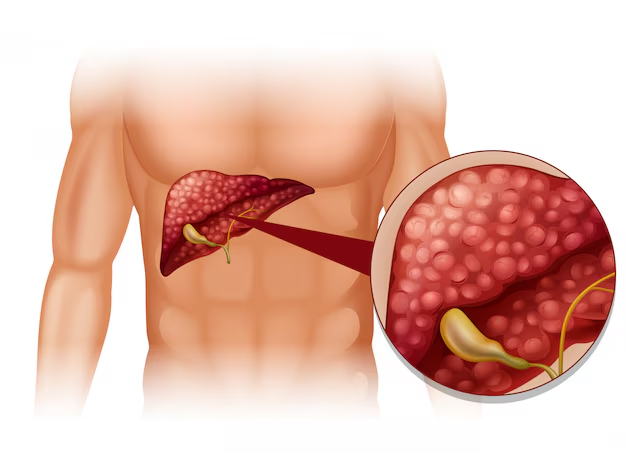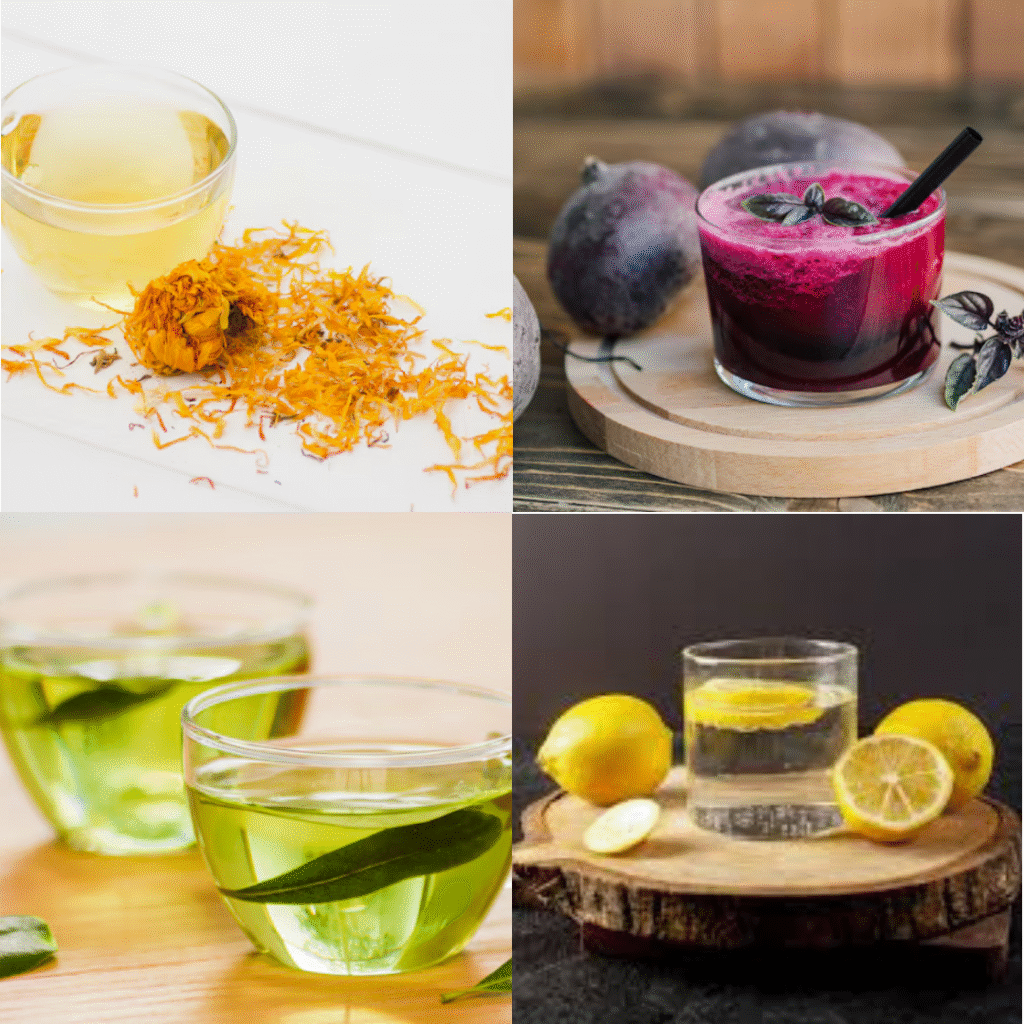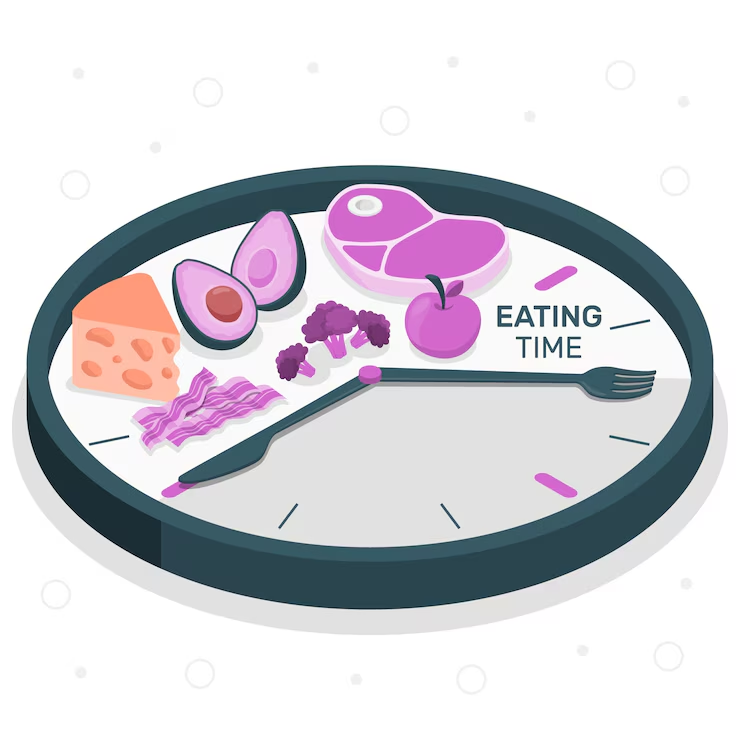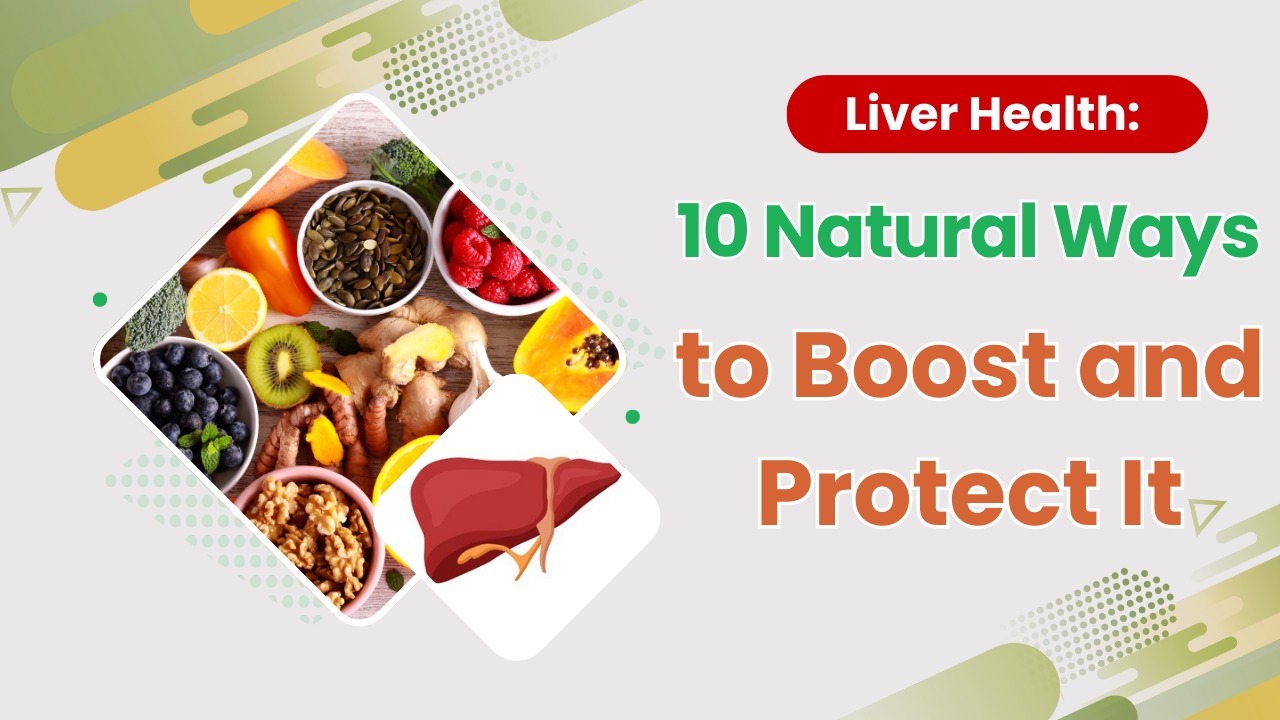The liver plays a crucial role in keeping the body healthy, performing over 500 essential tasks such as detoxifying harmful substances, supporting metabolism, regulating hormones, and producing bile for digestion. It’s a hardworking organ that keeps many vital systems running smoothly.
However, today’s lifestyle—full of processed foods, alcohol, and exposure to toxins—can put strain on liver function. Over time, these habits may slow down detoxification, affect digestion, and lower overall energy levels. Even though the liver is naturally resilient, it still needs proper care to stay in top shape.
The good news is that there are effective, natural ways to support liver health. From making better food choices to staying hydrated and reducing alcohol intake, small changes can make a big difference. In this article, we’ll explore 10 simple and science-backed tips to strengthen your liver and boost your energy, digestion, and overall well-being.

Eat a Liver-Friendly Diet
What you eat plays a major role in your liver’s health. Choosing the right foods can help your liver function more efficiently and stay protected from damage.
A diet rich in whole, nutrient-dense foods—like fruits, vegetables, lean proteins, and healthy fats—can support detoxification and reduce excess fat in the liver. Avoiding processed foods and added sugars is equally important, as they can lead to inflammation and fat buildup. Small, healthy changes in your daily meals can make a big difference over time.
Key Foods That Support the Liver:
Leafy greens: Vegetables like spinach, kale, and arugula are excellent for liver health. They are rich in chlorophyll, which helps the body eliminate environmental toxins like heavy metals and pesticides. These greens also support overall detoxification by promoting healthy bile flow.
Cruciferous vegetables: Broccoli, cauliflower, and Brussels sprouts are packed with compounds that enhance the liver’s natural detoxification processes. They help increase the production of detox enzymes, making it easier for the liver to break down and eliminate harmful substances.
Fatty fish: Fish like salmon, sardines, and mackerel are high in omega-3 fatty acids. These healthy fats help reduce liver inflammation and prevent fat buildup, both of which support better liver function and protect against conditions like fatty liver disease.
Garlic and onions: These flavorful vegetables contain sulfur compounds that play a vital role in activating liver enzymes. These enzymes are responsible for flushing out toxins, and regular intake of garlic and onions can support a more efficient detox process.
Citrus fruits: Lemons, oranges, and grapefruits are rich in vitamin C and antioxidants, which help the liver by neutralizing harmful free radicals. They also support the production of liver enzymes and improve digestion, contributing to better liver health.
Beets: Beets are a powerful liver-supporting food due to their high content of betaine and fiber. Betaine helps protect liver cells from damage and supports detoxification, while fiber aids in the elimination of waste from the body.
Foods to Avoid:
Sugary drinks and snacks
Processed meats
Refined carbs and white bread
Excess salt and trans fats
Stay Hydrated with Liver-Boosting Fluids
Staying well-hydrated is essential for maintaining a healthy liver. Water plays a key role in helping the liver filter and flush out toxins from the body, making the detox process more effective.
Proper hydration also supports bile production, which is necessary for digesting fats and removing waste. Drinking enough water daily can even help reduce the risk of gallstones, which form when bile becomes too concentrated. Simply increasing your water intake can go a long way in supporting liver function.

Best Hydrating Options:
Lemon water: Alkalizes the body and stimulates liver enzymes.
Green tea: Packed with catechins, which help reduce liver fat.
Dandelion root tea: A traditional liver tonic known to support detoxification.
Beetroot juice: Boosts nitric oxide and aids in reducing oxidative stress.
Avoid alcohol and excessive caffeine, which strain liver detox pathways.
Limit Alcohol Consumption
Alcohol is highly detrimental to liver health, as it can cause significant damage even with moderate consumption. Over time, drinking alcohol can lead to the accumulation of fat in the liver, a condition known as fatty liver disease.
Excessive or long-term alcohol use increases inflammation and puts stress on liver cells. If left untreated, this can progress to more severe conditions like cirrhosis or liver failure, highlighting the importance of limiting alcohol intake to protect liver function.
How Alcohol Affects the Liver:
Creates toxic byproducts like acetaldehyde
Promotes fat buildup
Increases oxidative stress and inflammation
Tip: Try to have alcohol-free days each week to give your liver a break. If you choose to drink, limit consumption to no more than one drink per day for women and two for men, as recommended by health organizations, to help protect liver function.
Maintain a Healthy Weight
Excess weight, especially around the abdominal area, is strongly associated with non-alcoholic fatty liver disease (NAFLD). This condition occurs when fat builds up in the liver without the presence of alcohol consumption. NAFLD has become one of the most prevalent liver diseases worldwide, with obesity being a significant risk factor. As the condition progresses, it can lead to more serious liver issues, such as inflammation and cirrhosis, making weight management an essential step in protecting liver health.
Natural Ways to Support a Healthy Weight:
Including regular physical activity (aim for 150+ minutes per week)
Focus on portion control
Avoid ultra-processed foods
Increase fiber intake to improve satiety and digestion
Even a 5–10% reduction in body weight can significantly reduce liver fat and inflammation.
Get Regular Physical Activity
Exercise is not only effective for burning calories but also directly supports liver function. Regular physical activity helps improve blood flow to the liver, promoting better detoxification and fat metabolism. It also helps reduce fat buildup in the liver, particularly around the abdomen, lowering the risk of liver conditions like non-alcoholic fatty liver disease (NAFLD). Additionally, exercise can boost liver enzyme activity, supporting overall liver health and reducing inflammation, making it a key factor in maintaining optimal liver function.

Benefits of Exercise for the Liver:
Reduces liver fat
Improves insulin sensitivity
Enhances circulation and nutrient delivery
Lowers inflammation
Best Forms of Exercise:
Brisk walking
Resistance training
Yoga
Swimming or cycling
Aim for a balanced mix of aerobic and strength-training exercises throughout the week.
Use Liver-Supporting Herbs and Supplements (Cautiously)
Many natural herbs have been used for centuries to support liver health, including milk thistle, dandelion root, and turmeric. These herbs are known for their detoxifying properties and ability to promote liver function. However, it’s important to remember that the quality and dosage of these supplements matter. Before including any herbal remedies into your routine, always consult with a healthcare provider to ensure they’re safe, effective, and appropriate for your specific needs.
Popular Liver-Friendly Herbs:
Milk Thistle (Silymarin): Known for its powerful antioxidant properties, milk thistle helps protect liver cells from damage and supports their regeneration, promoting overall liver health.
Turmeric (Curcumin): Turmeric is effective in reducing liver inflammation and fibrosis, helping to maintain a healthy liver and prevent chronic damage.
Dandelion Root: Dandelion root stimulates bile production and aids in detoxification, supporting the liver’s natural cleansing processes.
Artichoke Leaf: Artichoke leaf supports the liver by enhancing bile production, which aids in fat digestion and improves liver function.
Caution: Not all “detox” supplements are safe. Avoid unregulated or poorly labeled products.
Avoid Environmental Toxins and Chemicals
Toxins are present in many everyday items, including cleaning products, cosmetics, and environmental pollutants. These substances can overwhelm the liver as it works to process and eliminate them. Reducing exposure to harmful chemicals by choosing natural or non-toxic alternatives can help ease the burden on your liver. By making mindful choices in the products you use, you allow your liver to function more efficiently and focus on its crucial detoxification and regeneration processes, ultimately supporting better overall health.
Tips to Minimize Toxin Exposure:
Use natural, biodegradable cleaning products
Choose BPA-free bottles and containers
Avoid synthetic fragrances
Wear gloves when handling harsh chemicals
Eat organic when possible to avoid pesticides
Ventilate your living space often and invest in indoor plants like peace lilies or snake plants, which help purify the air.
Prioritize Sleep and Stress Reduction
According to traditional Chinese medicine, the liver works hardest at night, particularly between 1–3 AM. During this time, it focuses on detoxification and regeneration. However, sleep deprivation and chronic stress can disrupt these processes, making it harder for the liver to effectively eliminate toxins. Lack of rest and constant stress can impair liver function, hindering its ability to detoxify and repair itself. Prioritizing quality sleep and managing stress are essential for supporting optimal liver health and function.

Natural Ways to Support Rest and Relaxation:
Maintain a consistent sleep schedule
Avoid screens before bedtime
Practice mindfulness, meditation, or breathing exercises
Use calming herbs like chamomile or valerian root
Stress and liver health are also interconnected—cortisol and adrenaline overload can disrupt metabolic processes and increase fat buildup in the liver.
Avoid Unnecessary Medications and Over-the-Counter Drugs
Many common medications—especially when taken in high doses or for extended periods—can stress the liver.
Medications That May Affect the Liver:
Acetaminophen (Tylenol)
Statins
Nonsteroidal anti-inflammatory drugs (NSAIDs)
Some antibiotics and antifungals
Tip: Always adhere to dosage instructions and never mix alcohol with medications unless your doctor confirms it’s safe. If you’re on long-term prescriptions, consult your healthcare provider about possible alternatives or adjustments. This ensures both safety and optimal effectiveness in managing your health.
Get Regular Checkups and Liver Function Tests
Liver conditions can develop silently, often showing no symptoms in the early stages. Even if you feel healthy, it’s important to be proactive about your liver health. Regular health screenings, including liver function tests, can help detect issues before they become serious. Catching liver problems early allows for timely intervention and better management, reducing the risk of severe conditions like cirrhosis or liver failure. Stay on top of your health to protect your liver and overall well-being.
Important Liver Tests:
ALT (alanine transaminase) and AST (aspartate transaminase): Enzymes that increase when the liver is inflamed or damaged
Bilirubin levels
Liver ultrasound or FibroScan
Fatty liver index (FLI)
If you’re at higher risk due to family history, obesity, or alcohol use, discuss with your doctor about more frequent monitoring.
Bonus Tip: Try Intermittent Fasting (With Caution)
Emerging research suggests that intermittent fasting can improve liver health by reducing insulin resistance, decreasing fat accumulation, and promoting autophagy (cellular cleansing).

Popular Fasting Methods:
16:8 Method: Fast for 16 hours, eat during an 8-hour window
5:2 Method: Eat normally 5 days a week, restrict calories for 2 days
Note: Fasting isn’t suitable for everyone. Those with blood sugar issues, eating disorders, or certain medical conditions should consult a doctor before attempting it.
Sample One-Day Liver-Friendly Meal Plan
| Meal | Food Ideas |
|---|---|
| Breakfast | Warm lemon water, steel-cut oats with berries, chia seeds, and almonds |
| Snack | Fresh beet-carrot juice, a handful of walnuts |
| Lunch | Quinoa salad with kale, avocado, cucumbers, grilled salmon, and olive oil |
| Snack | Green tea and a small apple with almond butter |
| Dinner | Stir-fried broccoli, garlic, tofu or grilled chicken with brown rice |
| Evening | Herbal tea (dandelion root or chamomile) |
Conclusion: Your Liver Is Your Lifeline
The liver is a remarkable regenerative organ, capable of healing itself, but it still needs your support to function at its best. To protect and enhance your liver’s health, it’s important to adopt natural habits that nourish and strengthen this vital organ. By following simple, science-backed tips, you can boost your liver’s efficiency, prevent damage, and improve your overall well-being.
Start by including small, manageable changes into your daily routine. Begin your morning with a glass of lemon water to support detoxification. Include more leafy greens in your meals to aid liver function, and make exercise a regular part of your day—just a short walk can make a difference. Reducing hidden toxins, such as those found in processed foods and cleaning products, also helps lighten the load on your liver.
Over time, these simple habits accumulate, resulting in a healthier, more resilient liver and a stronger, more energized you. Your liver’s well-being directly impacts your vitality, so small changes can lead to big benefits.
FAQs
FAQ 1: How do I know if my liver is unhealthy ?
Answer: Early liver issues often have no symptoms. However, signs of liver trouble may include fatigue, yellowing of the skin or eyes (jaundice), abdominal pain or bloating, dark urine, and unexplained weight loss. A blood test or liver function test is the most accurate way to assess liver health. If you have risk factors like alcohol use, obesity, or diabetes, regular checkups are essential.
FAQ 2: Can I reverse fatty liver naturally ?
Answer: Yes, in many cases, non-alcoholic fatty liver disease (NAFLD) is reversible through lifestyle changes. Key strategies include losing excess weight, improving your diet, increasing physical activity, avoiding alcohol, and reducing sugar and refined carbs. Studies show that even a 5–10% weight loss can significantly reduce liver fat.
FAQ 3: Are liver detox products or cleanses safe and effective ?
Answer: Most commercial “liver cleanses” or detox products lack scientific backing and are unnecessary for healthy individuals. In fact, some may be harmful. The liver detoxifies itself naturally when supported by proper nutrition, hydration, sleep, and a toxin-free lifestyle. Focus on whole foods, not extreme cleanses or supplements.
FAQ 4: What are the best natural supplements for liver health ?
Answer: Common natural supplements that support liver function include:
Milk thistle (silymarin)
Turmeric (curcumin)
Dandelion root
Artichoke leaf extract
Always consult your healthcare provider before starting any supplement, especially if you take medications or have pre-existing liver conditions.
FAQ 5: How long does it take to improve liver health naturally ?
Answer: Liver health can begin improving within weeks of making positive lifestyle changes. Factors like diet, alcohol use, weight loss, and exercise can produce noticeable effects within 1 to 3 months. However, reversing significant damage may take longer, and in some cases (like cirrhosis), full reversal may not be possible—highlighting the importance of early prevention.


